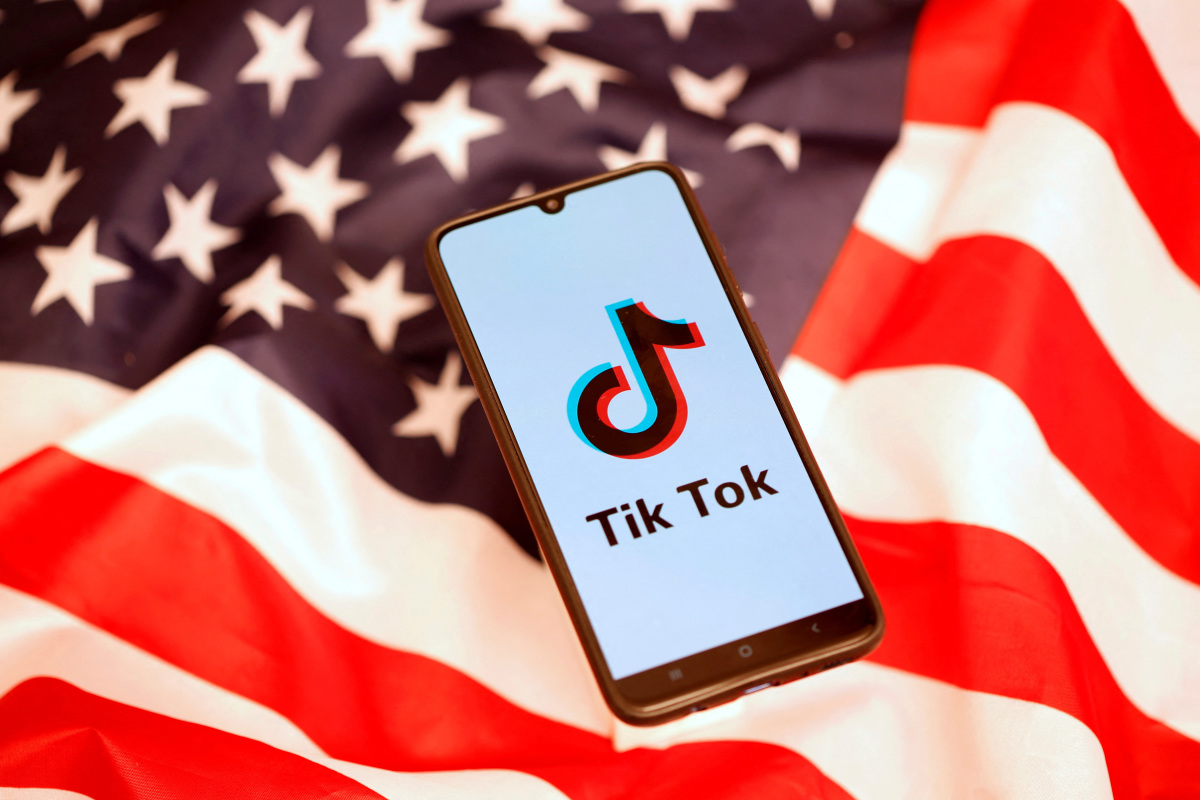KEY POINTS
- ByteDance’s CapCut and Lemon8 will also be banned
- Gov. Greg Gianforte said the apps are “tied to foreign adversaries”
- The order mainly targets apps with ties to China
Montana has banned the popular video-sharing app TikTok statewide, becoming the first U.S. state to implement such a law. The state has also prohibited the use of five other apps on government devices and state businesses.
Montana Gov. Greg Gianforte on Wednesday ordered the state’s Chief Information Officer Kevin Gilbertson to ban apps that pose a “risk of foreign adversaries obtaining Montanans’ personal, private, sensitive information and data” from government-issued devices.
Apart from TikTok, video-editing tool CapCut, video/photo-sharing social media app Lemon8, both owned by ByteDance, Chinese shopping platform Temu, Tencent’s WeChat and messaging app Telegram will be blocked from government devices. The governor said they are “tied to foreign adversaries.”
Gianforte noted that no executive agency, board commission or other executive branch entity, official, or employee of Montana state offices are allowed to download or access social media apps “that provide personal information or data to foreign adversaries” on government devices “or while connected to the state network.”
TikTok is just one app tied to foreign adversaries. Today I directed the state’s Chief Information Officer to ban any application that provides personal information or data to foreign adversaries from the state network. pic.twitter.com/92Im6D9Jgx
— Governor Greg Gianforte (@GovGianforte) May 17, 2023
“Additionally, any third-party firms conducting business for or on behalf of the State of Montana shall not use these applications,” Gianforte added.
The restrictions are not just applicable to cell phones, but also desktop computers, tablets, laptops and “other devices which connect to the internet.” Employees who have already downloaded any of the apps have been asked to “immediately remove” them.
The ban, which according to Gianforte “will defend the State of Montana and its people against threats to our security, privacy, and way of life,” will take effect on June 1.
It appears the latest move is mainly aimed at apps with ties to China, as ByteDance, Temu-owner PDD Holdings and Tencent are all based in the country. Telegram is an exception. Though the company was founded in Russia, it is currently headquartered in the United Arab Emirates.
Cybersecurity experts have often warned of the dangers of some Chinese-made applications.
“Temu is dangerous,” said tech writer Albert Khoury,” warning that the app “bypasses” phone security systems to read a user’s private messages, make changes to the phone’s settings and track notifications.
PDD Holdings reportedly shifted its official headquarters to Ireland recently amid increasing pressure from the U.S. government over concerns that Temu’s business may be linked to forced labor allegations in Xinjiang. On Apple‘s App Store, Temu was ranked No. 1 in the shopping category Wednesday. On the Google Play Store, it has more than 10 million downloads.
“WeChat may pose an even greater danger from the angle that alarmed government officials from the very start, as an app that gives the Chinese government direct access to user data in the U.S.,” wrote Arthur Herman, director of the Quantum Alliance Initiative.
A security report in 2021 warned that hackers were using Telegram as their “command and control system.”
Gianforte’s order came on the same day he signed a bill to implement a ban on TikTok “in order to protect Montana’s personal and private data from the Chinese Communist Party.” The statewide TikTok ban will take effect on Jan. 1, 2024, the governor’s office announced Wednesday.
The new law prohibits TikTok from being operated “within the territorial jurisdiction of Montana” and requires mobile app stores to make the app unavailable for residents.
Montana banned the video-sharing app’s use on government devices last December. At the time, the Republican governor urged residents to “protect their personal data and stop using TikTok.”
TikTok said the move “infringes on the First Amendment rights of the people of Montana.”
“We want to reassure Montanans that they can continue using TikTok to express themselves, earn a living, and find community as we continue working to defend the rights of our users inside and outside of Montana,” it added in a statement to CNN
Tech trade group NetChoice, of which TikTok is a member, also decried the state’s decision, saying Montana “ignores the U.S. Constitution” as it denies consumers the right to use apps and websites “citizens want to use.”
Reuters







